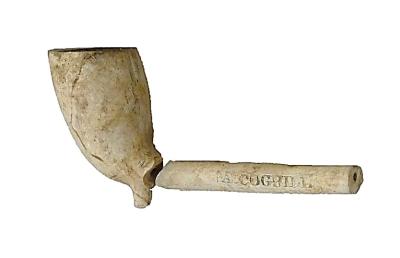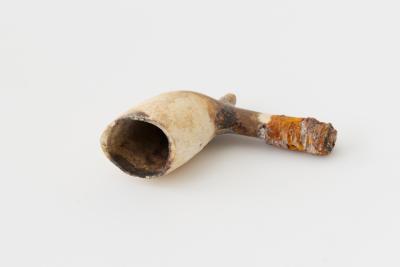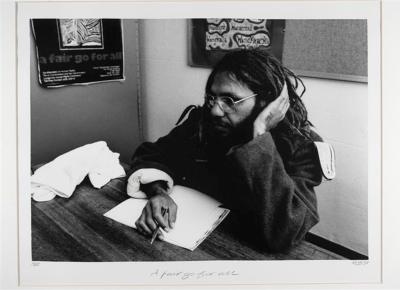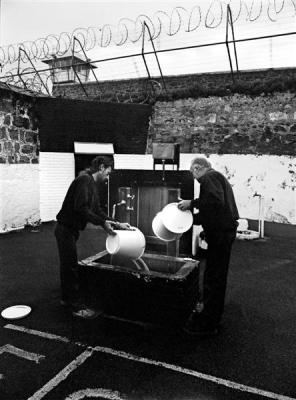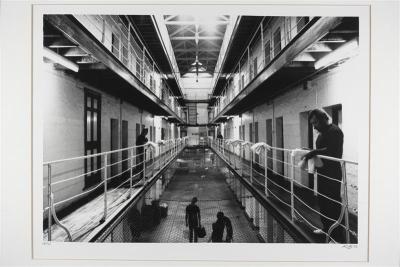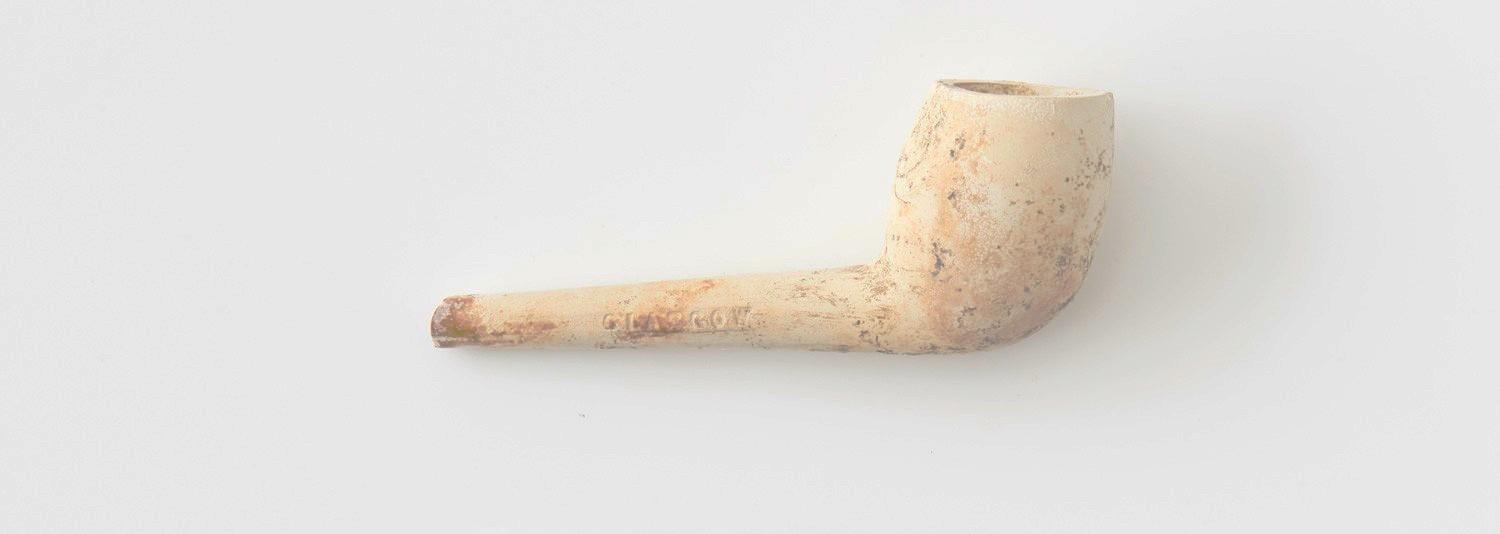Clay Pipe
c. 1870 - 1910Short, round, light cream coloured, intact clay pipe. Short, thin, cylindrical pipe stem made of light cream coloured clay, which tapers slightly outwards towards a large, thick rimmed, light cream coloured clay pipe bowl. The stem has thick walls and a small, round open channel through the centre. The end of the pipe is rough and uneven, suggesting that the stem once extended further, but has broken off (any missing piece has not been found). On the outside of the stem there are two maker's marks stamped into the surface. On one side reads, '241 WALDIE'. On the other side of the stem reads, 'GLASGOW'. The bowl of the pipe is attached to the stem at a 90-degree angle. It has thick walls, with a large cylindrical opening in the top, which extends downwards through the bowl. The surface is slightly discoloured and marked. On the outside of the bowl, facing the pipe stem, is a maker’s mark stamped into the surface of the clay. It is an oval motif, with 'BEN NEVIS/CUTTY' written around the edge. In the centre of the oval motif is a small star shaped impression.
This pipe was discovered in the tunnels at Fremantle Prison on 16 October 2018 by a contractor who was undertaking repair work. When the contractor was moving through the tunnels, he put his hand on an indented ledge in the limestone wall and felt something solid underneath his hand. Further investigation revealed this clay pipe underneath a thick layer of limestone dust and sand.
Details
Details
'241 WALDIE', 'GLASGOW', 'BEN NEVIS/CUTTY'
This pipe has three separate maker's marks. ‘Ben Nevis Cutty’ is the brand/style of pipe. It was known as a ‘workman’s pipe’ because it was specifically designed with thick walls and a short stem so it could be clasped and balanced between the teeth, thereby allowing a person’s hands to remain free to carry out manual work. It was particularly popular in Scotland and Ireland, and in use between 1870 and 1910. The mark 'Glasgow’ denotes the place of manufacture for this pipe. 'Waldie’ is the name of the manufacturer, who produced clay pipes between 1870 and 1929.
The date of manufacture for this clay pipe fits within the period of construction and use for the Fremantle Prison tunnels. The tunnels were excavated during the late nineteenth century by prisoners and originally provided both the Prison and the Fremantle township with fresh water. Fremantle became part of the municipal water supply in c.1910, and from that point on the water in the tunnels was used for reticulation. In 1989 the tunnels were found to be contaminated with diesel oil, and a bio-remediation program was instigated. The clean-up was successfully completed in 1997 and the Tunnels opened to tourists in 2006.
